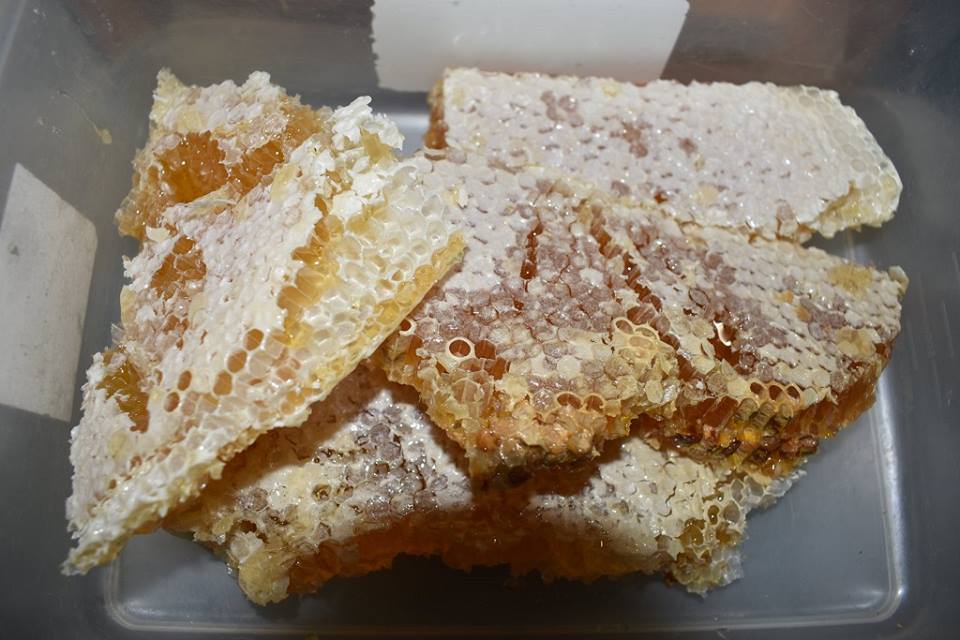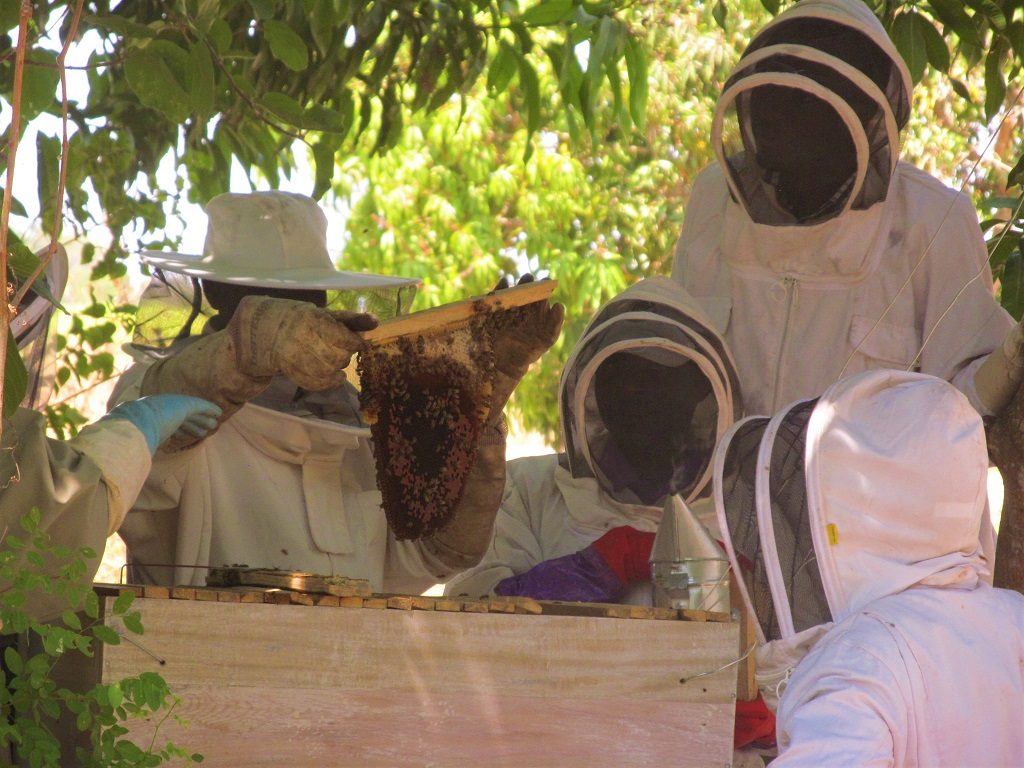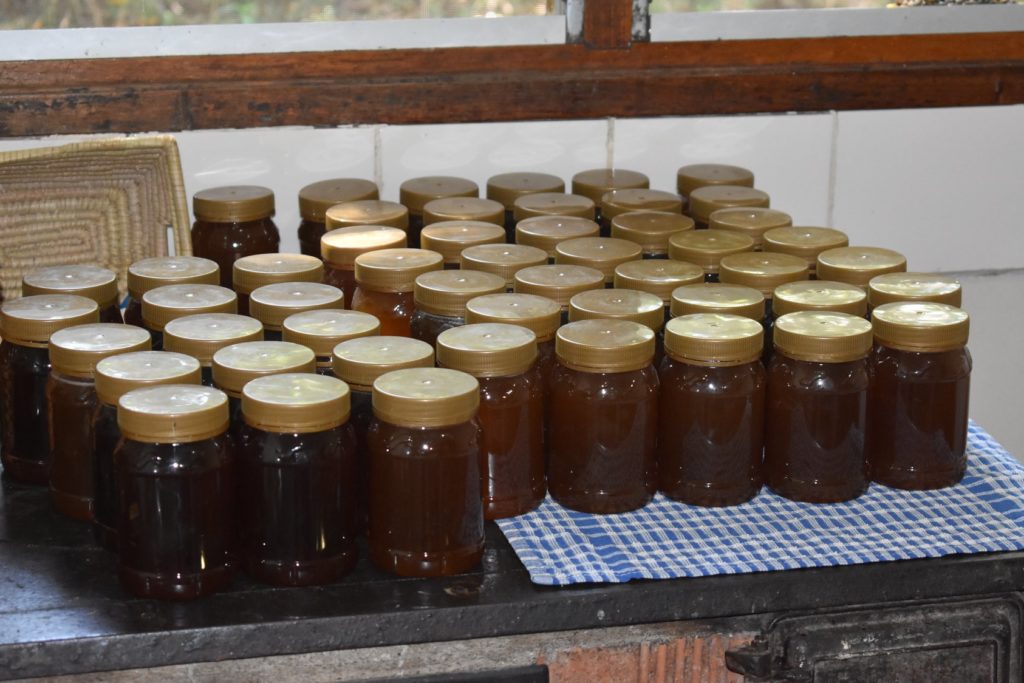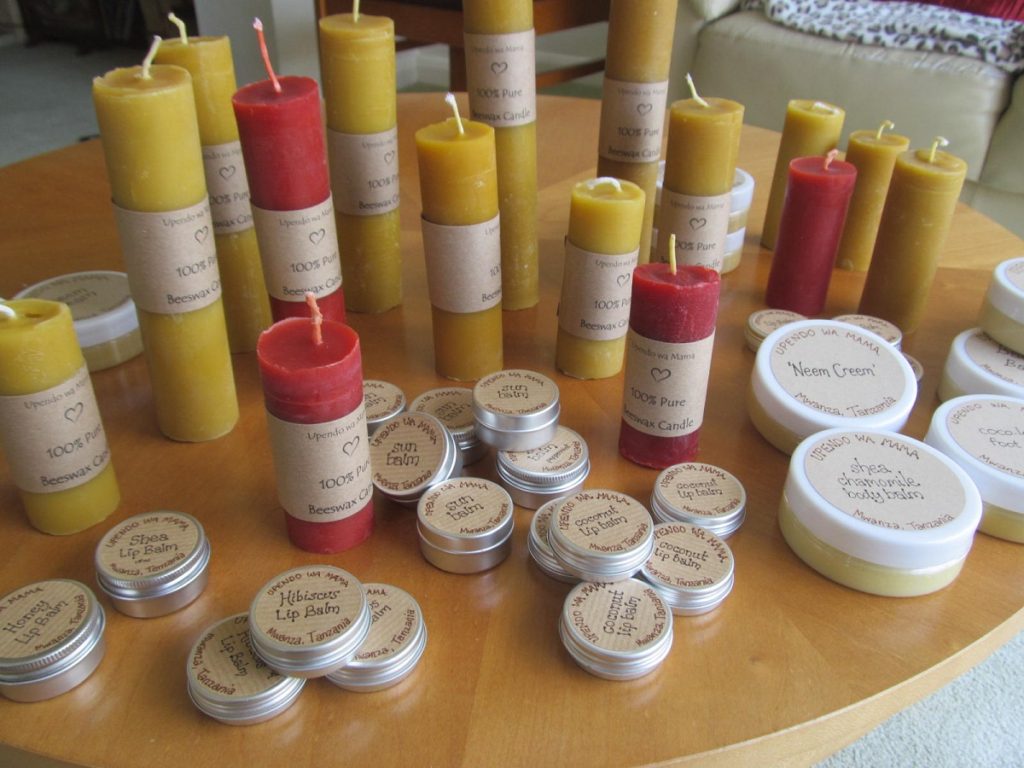A beekeeping project links in with our work in conservation agriculture. As well as the benefit of honey, bee hives in a field can greatly increase crop yields. For example, for every 500Tsh a beekeeper earns in honey when offering pollination services to a farmer, the farmer could gain as much as 10,000Tsh in increased crop yield! Currently we have beekeeping groups in two villages and have three hives at the Demonstration Farm in Kisesa. Beekeepers are trained to manage hives, harvest and market honey. Women’s groups are being taught to make beeswax crafts such as lip balms and candles, starting entrepreneurial projects.
Much of our work involves travelling around the region visiting the beekeepers , monitoring the hives and answering questions about the ‘modern’ techniques we promote. The ‘traditional’ approach of harvesting is to burn or smoke the hive so that the colony either flees or dies, allowing the farmer to remove everything from the hive (honey, wax, dead bees) and extract the honey for sale. This destructive approach risks wiping out the entire colony. Our groups have been taught to use hives with ‘top bars’ which allow a trained beekeeper to non-destructively inspect the state of the hive and then, when ready, harvest only enough honey and wax as is safe, allowing the colony to replenish quickly.









